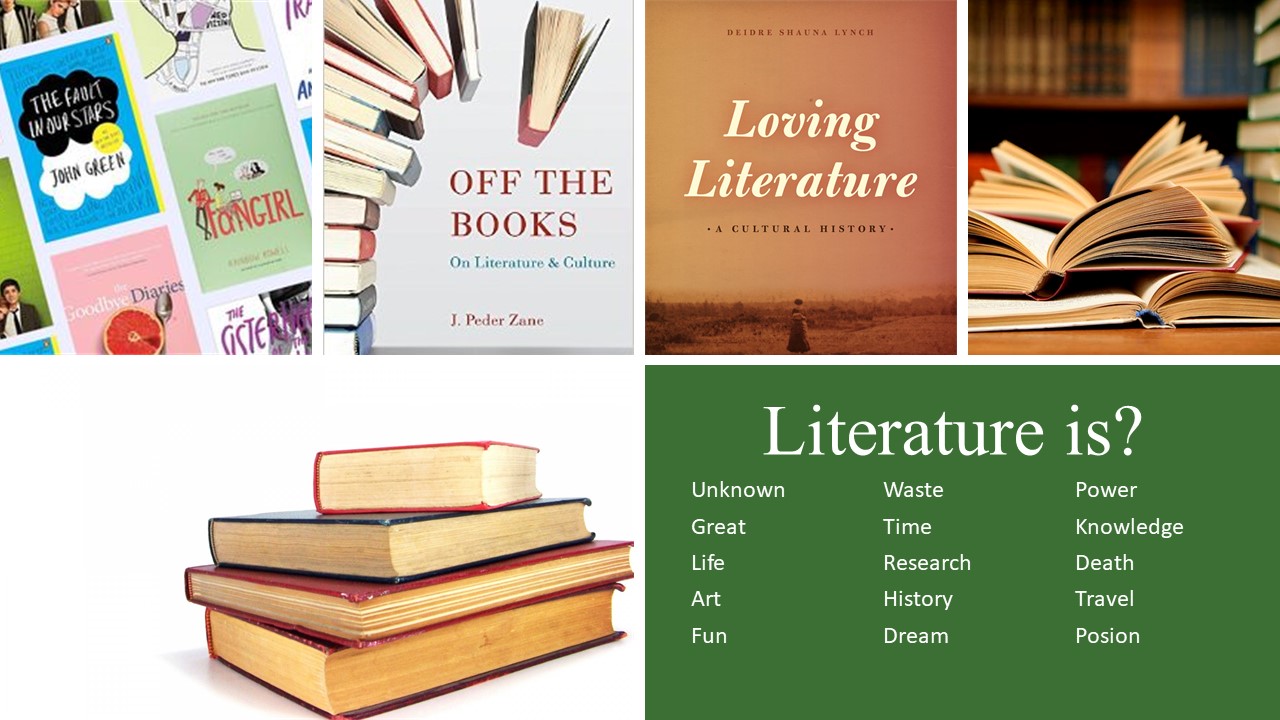Table of Contents
Literature is?
This article, “Literature is?” is basically a general overview of the term”Literature”.
The literature generally is any collection of literary work, however, it’s also been used more restrictively for works in the specific field of Languages such as poetry, fiction, play, and non-fiction. In modern times, the accepted definition has extended to include non-English written literature, particularly mass-produced literature, most of which has already been transcribed by the masses. Modernists such as Franz Kafka have termed modernism “cancer” of literary culture that has corrupted the entire concept of literature. Because of this, some scholars feel that the term is no longer useful or relevant. However, other scholars take on the view that, in light of the development and diversification of literature over time, the meaning of the term itself has changed.

The literature generally refers to any recorded work of literary, dramatic, musical, or verbal content that originated during the period of ancient world literature and developed into a literary work through the years. It can also refer to a particular category of such works (for example, epic). A number of definitions exist, with some more narrow in scope than others. Below are some examples of the broadest senses of literature.
Major forms of contemporary literature comprise the Western and Modern languages, poetry, dramatic art, and printed literature. The term ” Literature” actually refers to any of these three. ” Literature” is usually seen to include any set of texts, whether spoken or written, that can be accessed and used by a majority of people during their lifetimes. This is why a wide variety of texts can be considered Literature. Additionally, there are some works that, although they don’t fit into the above categories, nonetheless constitute part of the overall genre of Literature. For example, novels and short stories constitute a part of the literary classic of the past two thousand years or so.
Poetry is the oldest form of literary composition and was common in early human civilizations. However, literary prose writing is most commonly associated with Shakespeare, whose famous plays (written in the English language) have inspired and been commented on by hundreds of authors since the start of the eighteenth century. Poetry is the most widely-read of all literary genres. In fact, one out of every four words in the English language (10 billion) is composed of a word or phrase originating from poetry. The three main poetic genres are narrative, play, and non-narrative.
Dramatic and comedy are two of the oldest forms of drama in the world. They differ primarily in content and style, but both have been the source of many works of literature. Comedy, also known as play, is a form of a narrative where characters interact with each other, often involving the characters coming into contact with things that are ordinarily taboo. Dramatic language tends to be loud and vibrant, using exaggerated physical gestures and dialogue. Both of these genres are the progeny of dramatic writing, which dates back to ancient Greece.
Novels are written primarily for entertainment and are most commonly categorized into romance, fantasy, and science fiction. Romance is a term used to describe any written work that attempts to provide a reader with romantic thoughts and scenarios. Fantasy is used to fill the subcategory of mystery, while science fiction combines science with magic. Of the three genres, science fiction has developed the most since the beginning of the twentieth century. It has become the foremost science fiction genre in popular culture.
All three major forms of literature can be divided into two main categories: narrative and non-narrative. Narrative literature comprises stories and novels based on reality. On the other hand, non-narrative literature comprises works such as philosophy, novels based on myths, biographies, epics, legends, and fictions.
The development of the English language and the addition of new poetic forms during the Middle Ages gave rise to the poetic forms known today as prose. Poetry had the advantage of being able to reach a wider audience than the spoken word ever could. The majority of poetry and all the other narrative forms are written in verse form. In fact, throughout the history of English literature, both the spoken and written word have been combined into one another.
Literatur is? Unknown?
Help Us Improve This Article
Did you find an inaccuracy? We work hard to provide accurate and scientifically reliable information. If you have found an error of any kind, please let us know.
If you have any scale or any material related to psychology kindly share it with us at info@Ilmu علموبابا. We help others on behalf of you
Follow